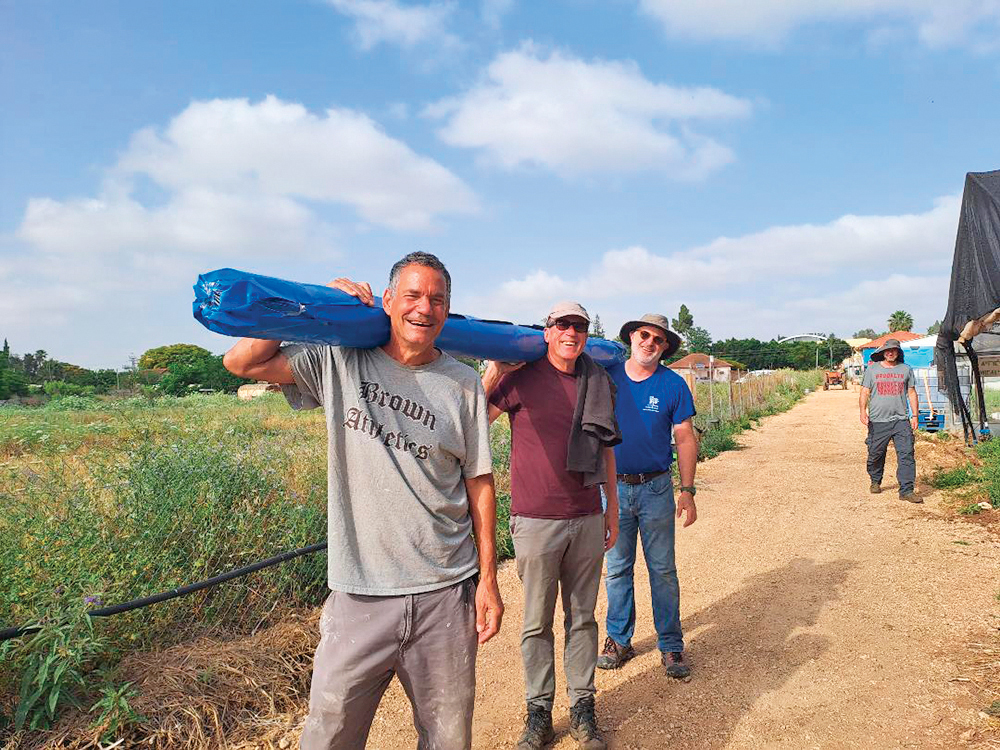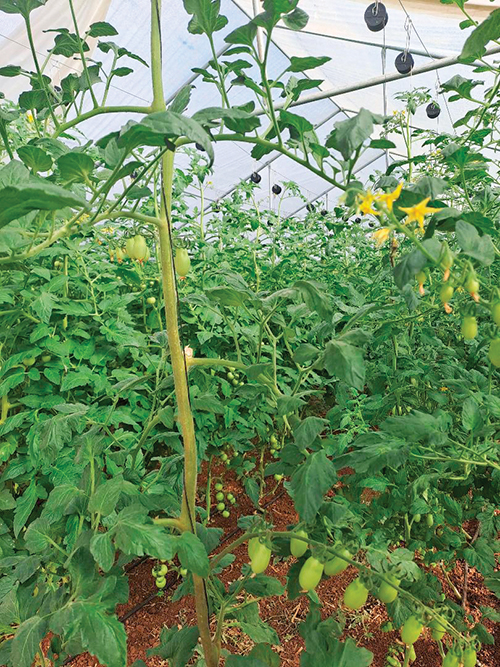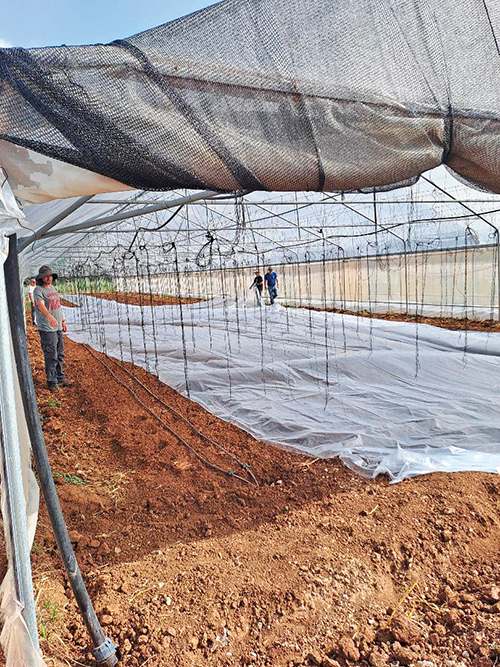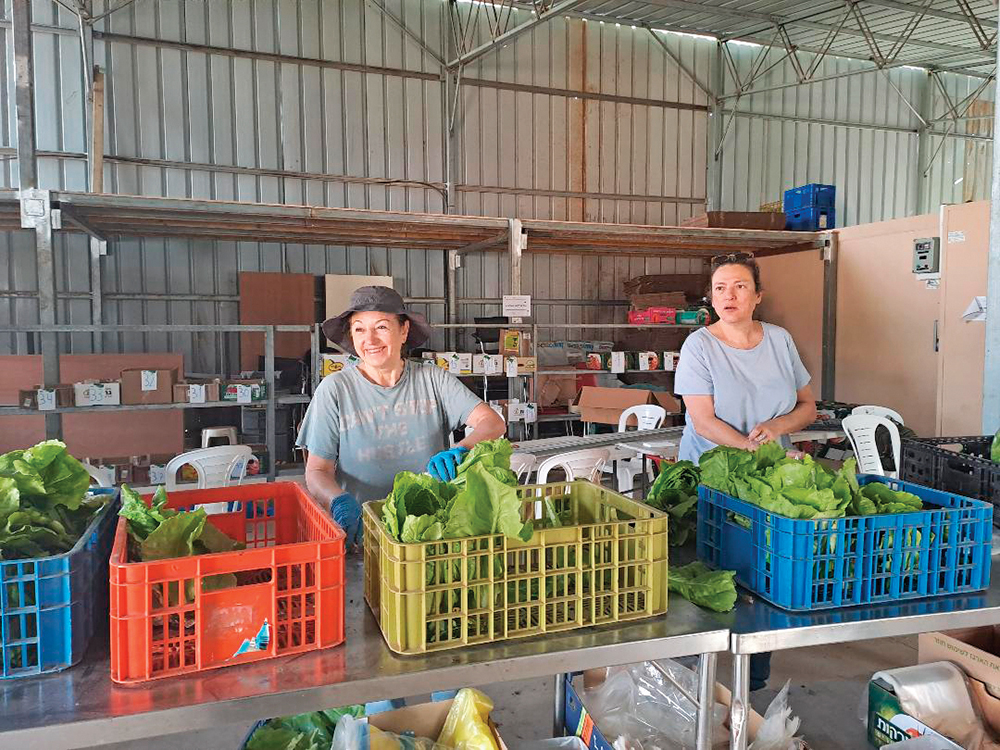
A high incidence of post-traumatic stress disorder (PTSD) is unfortunately one of the tolls that Israel’s wars have taken on both its military and civilian population. There are different types of PTSD, and each has to be addressed differently.
Understanding that vital need, Yuval Limon, 67, and Nir Lahav, 62, began to build a place to help heal military PTSD a year-and-a-half ago. They received 20 dunams (about five acres of land) that had been lying fallow from two families who had given 10 dunams each in the religious Moshav Chemed, near Ohr Yehuda, in central Israel. There, Limon and Lahav began building hothouses for agriculture, and facilities for group therapy to treat PTSD at three levels: physically, emotionally and socially. Sometimes army veterans are so traumatized by their experiences that the farm is the only place they’ll leave the house to go.
The initiative is called Ruca’s Farm, after Lahav’s mother, who came on aliyah from Argentina in the 1950s, and was one of the founding members of Kibbutz Gazit, in northern Israel. So Lahav is getting back to his roots, quite literally.

Ruca’s Farm has six greenhouses where vegetables are grown organically, as well as fields growing 200 fruit trees, and other crops like corn. The produce is then sold locally (farm to table), and helps support the initiative. It is also served for lunch to the participants and staff, and one of the religious social workers tithes it. The founders are also hoping to create a farmer’s market at the moshav. Everything is built by volunteers.
Research has demonstrated that treatment combining work in nature and agricultural cultivation can improve mood, reduce loneliness, increase physical functioning, raise the effectiveness of drug treatment, and contribute significantly to the future success of those suffering from the severe effects of PTSD.
Ruca’s Farm operates a unique and intensive treatment program for Israeli veterans —an eight-week course in groups of 10-15, which has proven to be successful. There are two types of groups; one composed of soldiers from previous Israeli wars, and a separate group for soldiers of the Israel-Hamas war.

Some of the participants who have come from the current war have witnessed horrible scenes that have affected them terribly. The brutal and bloodthirsty massacre and atrocities of Hamas on October 7 were in some ways more traumatic than the war itself.
The farm has about 50 volunteers, most of them older, who come to work once or twice a week. Many of them are academics and high-tech workers who are volunteering in their retirement years.
After their own army service, both Limon and Lahav had successful careers. Limon founded a famous chain of retail stores called HaMetayel that sells hiking and camping equipment, and Lahav worked for The Jewish Agency. Both were looking for something meaningful to do after their retirement, and they had met through various projects that each was involved in.
The participants of the Ruca’s Farm program are chosen in cooperation with the Rehabilitation Division of the Ministry of Defense. They work for an hour or two on the farm, have lunch, and then do group therapy sessions for another two-and-a-half hours. The staff is of the highest caliber and are remunerated by the donations made to the farm.
Ruca’s Farm is under the guidance of therapists and researchers who are leaders in the field of treatment of PTSD. One of the ranch’s psychologists, Ofer Chai was a medic in the first Lebanon War, in which he lost one of his eyes. He was awarded the Medal of Valor and decided to dedicate his life to psychology.

All of the participants are military, and although most are men, some are women. They encountered scenes they couldn’t have imagined in their worst nightmares. Sometimes, a post-service soldier will not display signs of psychological stress, but then something will act as a trigger, even long after the event.
Both Limon and Lahav stress that they want the people who come to the farm for rehabilitation to feel at home. They are expending much effort, planning and money in building a kitchen, a meeting room and other venues that will give the feeling of home and safety. Right now they are meeting in temporary buildings.
The farm is a work in progress and new things are being added all the time. They are also committed to the highest standard of agricultural high-tech innovation for organic and biological farming. They have also recently started an apiary with a few hives for the production of honey.
“We feel that we owe these people a lot. The trauma they experienced compromises their functioning and we want to help them find peace here so they can return to a normal life. We recognize the Divine Providence we have been privy to,” said Limon. “It isn’t a coincidence that Nir and I met.” He and Lahav want to expand their work, and not just meet the immediate need due to the war. “We’re only just beginning,” they said.
Email: rucasfarm@gmail.com
To contribute to Ruca’s Farm, Via The Good People Fund website: https://www.goodpeoplefund.org/how-can-you-help/mitzvah-donate/ Please make sure to direct your donation to the work of Ruca’s Farm in the “comments box.”
By Check: Please make checks payable to The Good People Fund with a notation that it is intended for “Ruca’s Farm.” Checks can be mailed to: The Good People Fund, 384 Wyoming Ave, Millburn, NJ 07041.
Rosally Saltsman is a freelance writer, originally from Montreal, who lives in Israel. Come join her!










